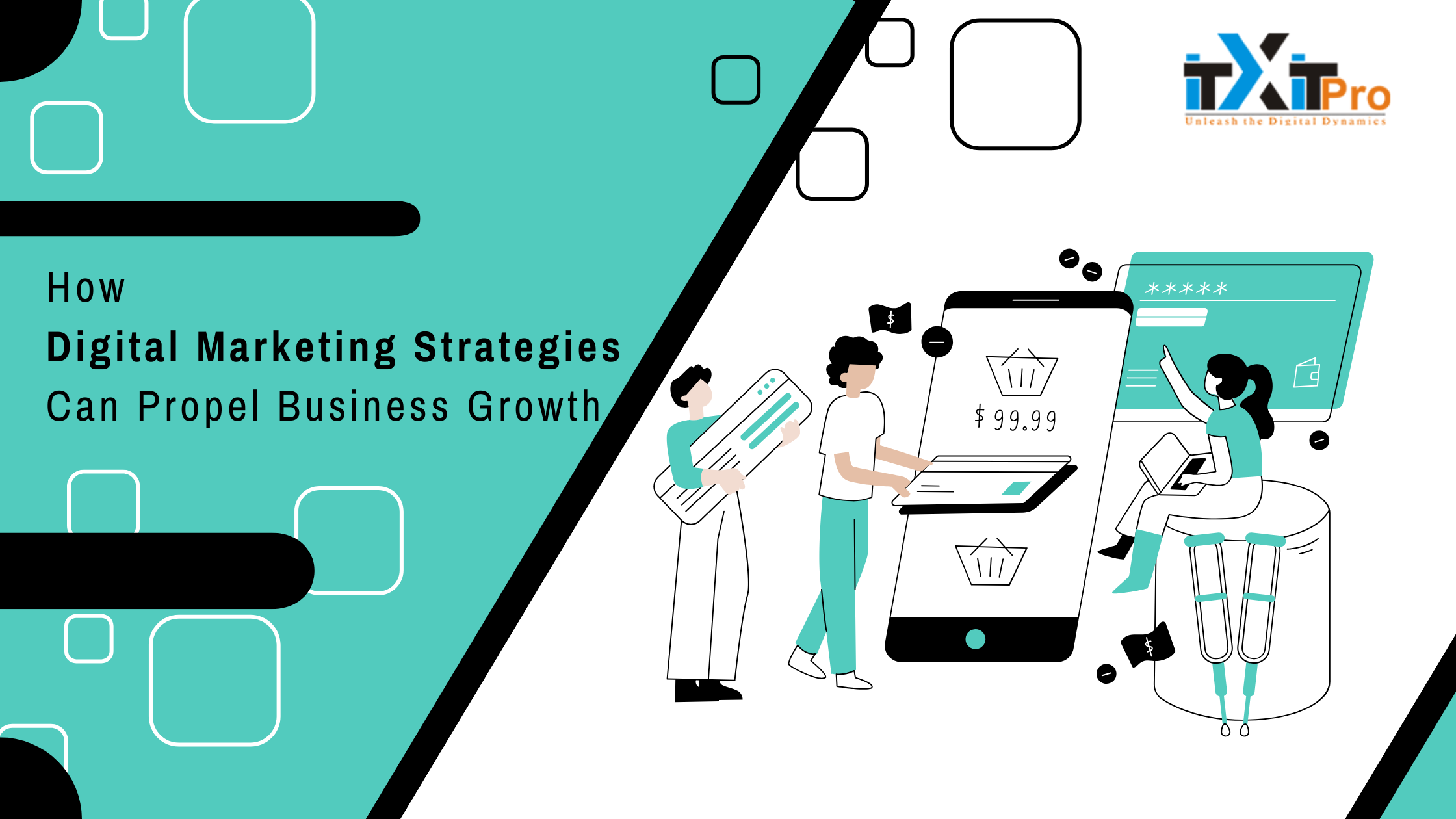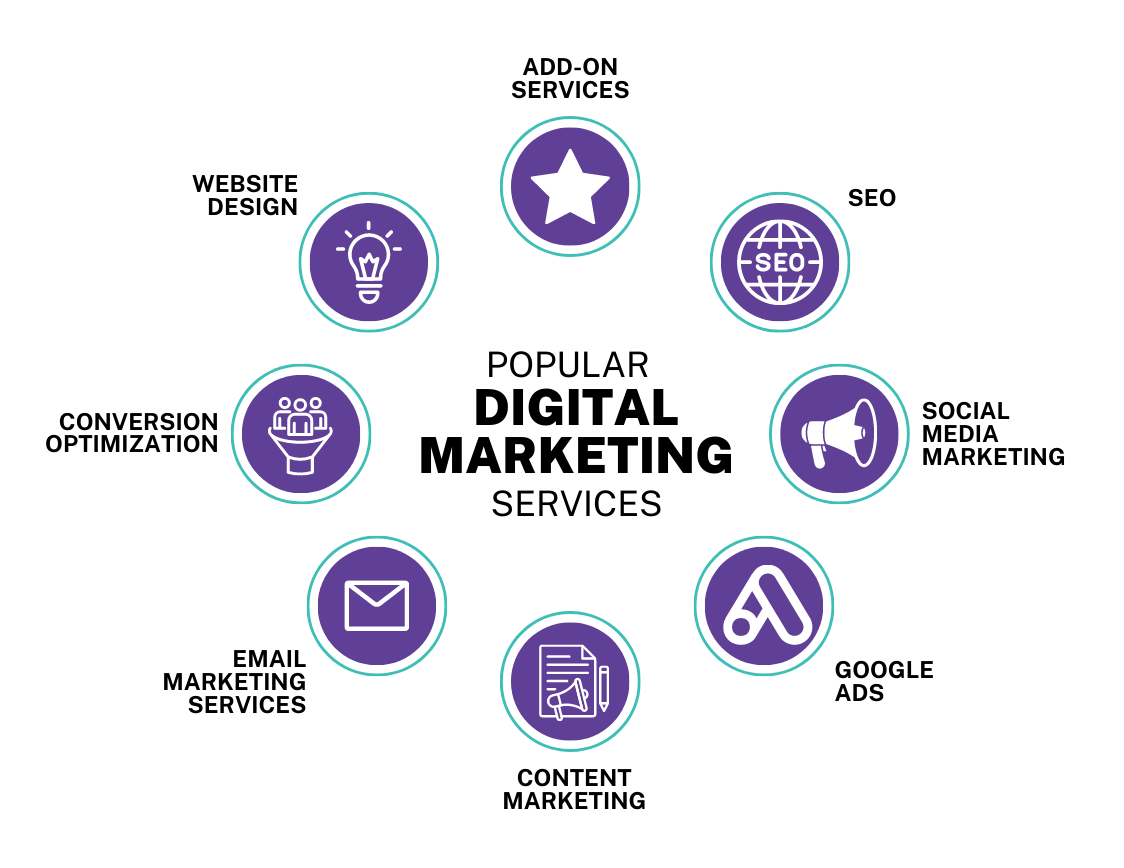Introduction

As we live through the digital age, businesses encounter competition, and consumer behaviors are constantly changing. With these challenges and growth opportunities in mind, businesses are reaching out to digital marketing companies to guide them through the maze of the internet. A digital marketing company can provide expertise, resources, and strategies to enhance your online presence, develop traffic, build leads, and ultimately increase sales.
In this blog, we will walk you through how a digital marketing company can help your business grow and why an investment in one today is a smart investment in your long-term success.
Understanding Digital Marketing
Digital marketing is the practice of using digital channels such as search engines, social media, and email to promote and sell products or services. Digital marketing allows businesses to connect with their target audiences in real time and on a more personal basis than traditional marketing methods. Digital marketing aims to increase visibility, establish relationships, and drive conversions, whether it be SEO, pay-per-click (PPC) advertising, or content marketing. The transition from traditional marketing to digital marketing is not a fad and is necessary for any business that wishes to remain competitive.
As consumers continue to spend more and more time online, businesses have to change their marketing strategies to follow their consumers where they socialize.
Why Is Digital Marketing Important?
In today’s digitally-driven world, the significance of digital marketing has an importance that cannot be understated. The emergence of the internet provides businesses with many opportunities to reach audiences across the world, often at a lesser cost than traditional marketing. Also, digital marketing provides measurable results, which allows businesses to measure the performance of their marketing and make better decisions based on this information.
Businesses can increase their online presence naturally and organically through SEO, rather than paying for each visitor, as in traditional avenues. This also provides efficiency to market businesses on a lower cost option that larger businesses, can also afford to compete with, and it does not hinder in small businesses in their capacity to compete.
Benefits of Digital Marketing
Digital marketing has numerous advantages. The main benefits can be summarized as follows:
Direct Engagement: Digital marketing enables businesses to connect with their customer base directly via social media, email, and other digital platforms. This enhances relationships with customers, builds loyalty, and keeps customers engaged.
Targeted Marketing: Unlike traditional marketing, businesses can target specific demographics by utilizing age groups, genders, interests, and behaviors, which means marketing messages reach the right audience.
Scalability: Digital marketing strategies can seamlessly increase outreach to a wider audience, from local consumers to international markets, making it a strong tactic for businesses looking to grow.
Cost: With traditional marketing, many avenues are available at a discount, such as SEO and social media marketing. Marketing spending can be increased based on budget.
Measurable: Marketing dollars can be tracked easily in a digital world; businesses can have performance analytics on hand with little regard for time or cost.
Types of Digital Marketing Strategies
There are a variety of different types of strategies when it comes to the digital marketing scene, each one with its benefits. Several of the most popular strategies involve the following:

- Search Engine Optimization (SEO): SEO is the process of optimizing your website to rank highest on search engines’ results pages (SERPs). When your business targets relevant keywords, improves the structure of your site, and builds quality backlinks, you drive organic traffic to your site. SEO is the most cost-effective way to gain visibility and attract targeted leads.
- Pay-Per-Click Advertising (PPC): In a PPC advertising structure, your business is bidding on target keywords to display ads on search engines or social media channels. Every time the users click on the ad, you are charged a fee. PPC is unique as it provides immediate visibility, which allows a business to quickly get more traffic while they build their organic search visibility through SEO.
- Social Media Marketing: As there are billions of users on social media platforms like Facebook, Instagram, Twitter, and LinkedIn, social media marketing allows your business to interact and engage with their target audience and also build brand awareness. Social media marketing allows for direct communication with customers, making it easier to create relationships, and drive traffic to your website.
- Content Marketing: Content marketing consists of producing valuable and relevant content—such as blog posts, videos, or infographics—for the purpose of engaging and educating your target audience. Great content attracts visitors and allows companies to begin to position themselves as thought-curators in their respective industries.
- Email Marketing: Email marketing is still one of the most effective ways to nurture leads and convert them into customers. By segmenting your audience and sending personalized emails, you can provide targeted messaging to subscribers and encourage them to take action.
- Affiliate Marketing: Affiliate marketing is a performance-based strategy in which the business and partners (affiliates) work together to promote a product and then pay a commission on sales. This is an effective way to leverage an affiliate’s reach to raise brand awareness and sales.
- Video Marketing: Video is one of the most engaging forms of digital marketing. Whether tutorials, product demos, or customer testimonials, video can capture attention and convey your point of view in a dynamic, engaging and memorable manner.
The Role of Google in Digital Marketing
Most digital marketing activities tend to revolve around Google. In order to communicate with your target audience, organizations can use Google’s various offerings, including an advertising platform and others that include analytics and performance monitors.
Google Ads: Google’s advertising platform allows businesses to bid for ad placement on search engine results pages. In a Google Ads pay-per-click campaign, organizations can bid for placement in association with any keywords of their choosing. Customers will see that your offering is relevant to their search using keywords that have been submitted to Google Ads as part of your organization’s ad campaign.
Google Analytics: Google Analytics is an important tool because it can provide visibility into user behavior as well as campaign and website performance. Organizations can use Google Analytics to identify changes to their digital marketing strategies.
Google My Business: Lastly, Google My Business is an important connector between a local business and visibility in a search engine. Most businesses have some local or regional aspect connected to their business. Google My Business allows for local businesses to communicate with customers who are nearby and who are using a search engine to find relevant businesses.
Developing a Digital Marketing Strategy
To develop a successful digital marketing strategy, there are several key steps to take:
Identify Your Goals: First, set SMART goals (measurable, achievable, and time-bound) for your digital marketing efforts.
Know Your Audience: Identify who your target audience is, what they want, and how they engage with digital content to personalize your campaigns.
Select Your Digital Marketing Channels: Based on your goals and audience, choose the digital marketing channels you hope will work best for your business, whether that is SEO, social media, or email marketing.
Monitor and Optimize: Use Google Analytics or similar analytic tools to monitor performance and to make data-driven optimization; all to ensure your goal for greater marketing performance is realized.
Conclusion
Digital marketing strategies are not just optional; they are necessary for any business that wishes to grow in our technology-first world. Organizations that embrace digital strategies and use tools like Google Ads, Google Analytics, and social media platforms can effectively target audiences, increase visibility, and drive conversions. Whether you are starting to explore digital marketing strategies or seeking to refine your current strategies, implementing a sound digital marketing strategy can help propel your business growth and position your company ahead of competitors. Start today and watch your business gain increased visibility and traction in the digital landscape!















